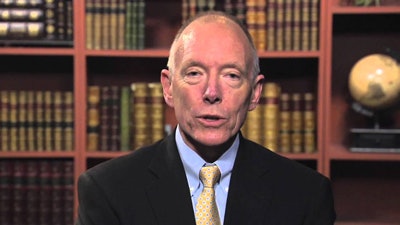The Education Department announced Monday that it would deny Charlotte School of Law access to federal student loans.
 Under Secretary of Education Ted Mitchell
Under Secretary of Education Ted MitchellIn a statement, Under Secretary of Education Ted Mitchell said, “The ABA (American Bar Association) repeatedly found that the Charlotte School of Law does not prepare students for participation in the legal profession. Yet CSL continuously misrepresented itself to current and prospective students as hitting the mark.”
He further characterized CSL’s actions as “misleading and dishonest.”
Prior to the ED decision, ABA had placed CSL on two-years’ probation, finding that the school was not in compliance with association rules requiring schools to admit applicants who appear likely to succeed in academic programs and pass the bar. ABA first informed CSL of its non-compliance with the standards in February 2016 and again in July 2016.
According to the most recent ABA data, of the 456 students who graduated from CSL in 2015, 120 had found full-time, long-term work.
CSL is part of the for-profit InfiLaw System, which also manages Arizona Summit Law School and Florida Coastal School of Law. The Charlotte school was established in 2006 and has had a recent track record of low graduation rates and low graduate employment success rate.
After reaching a high in bar passage rates in 2010, the numbers have declined. Only 45 percent of CSL graduates passed the North Carolina bar in July 2016, compared to the 66 percent state average.
For the 2015-16 academic year, CSL enrolled 946 federal aid recipients, receiving $48.5 million in federal student aid funds in the process. According to CSL’s website, a full-time, three-year JD program costs $123,786.00.
In a statement released Monday evening, CSL said that it was working to protect students and to address the issues raised by the ABA probation. ED’s decision was unexpected, CSL said.
“We had no warning of this change in the eligibility status of the School and no opportunity to communicate with the DOE prior to its letter or the public announcement,” the statement read.
ABA released a statement saying that CSL remained an ABA-accredited institution but noted that the removal of federal student loan access could impact the school’s “ability to operate in compliance” with ABA standards. The removal of federal student loan access to an ABA member school such as CSL, which is not affiliated with a university or college, is unprecedented.
CSL’s access to federal loans will end as of January 1, 2017. The school has until Jan. 3, 2017 to dispute the decision.
Staff writer Catherine Morris can be reached at [email protected].





















